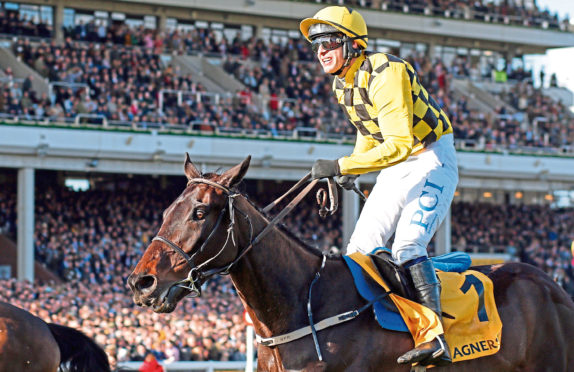
In March, I was invited by The Jockey Club to join one of their hospitality boxes on the last day of the Cheltenham Festival.
I had never been to the festival before and was excited to experience it. As part of the day, we were given a “behind the scenes” tour of the racecourse, which included a visit to the jockey’s weighing room and access to the parade ring where the horses go on show prior to the race.
We even got to watch the Gold Cup from inside the track. But I can still picture looking towards the crowds, and realising just how many people were there.
We were just starting to become more aware of the seriousness of coronavirus, and it really did strike me how dangerous it might be to have so many people squashed together – especially with the worrying reports coming out of other European countries, such as Italy and Spain.
But hindsight really is 20/20.
Experts, including the chief executive of Horse Racing Ireland and a former director of public health, have now called for an inquiry into whether the event should have taken place, especially as figures show hospitals local to Cheltenham have recorded more deaths from coronavirus than a number of neighbouring NHS trusts.
What’s more, other events, such as the Manchester derby on March 8 and the Liverpool versus Atletico Madrid match at Anfield a few days later, have been identified as possible breeding grounds for the virus, after there was increase of between 2.5 and 3.5 daily deaths in nearby hospitals.
While we do have to consider other factors, including the respective size of each NHS trust, the population variation and peoples’ ages, these facts and figures make you think about what we could have done differently.
Given what was happening elsewhere, should the government have shut down mass gatherings much earlier? Yes, for sure.
As a country, we were behind other nations in terms of following scientific advice. You only have to look at places like New Zealand to understand what a difference it would have made – as soon as the virus hit, the government closed down their borders and put the general public under lockdown.
As a result, they have had very few fatalities and their communities are one of the first to start transitioning back to normality.
I was one of the 60,000 who attended Cheltenham and if you had told me seven weeks ago we would now be in isolation, unable to visit friends and family or even pop to the shops when we feel like it, I definitely could not have imagined this “new normal”.
Hopefully, we will learn from our mistakes and be much better prepared should we face a similar crisis again.

Enjoy the convenience of having The Sunday Post delivered as a digital ePaper straight to your smartphone, tablet or computer.
Subscribe for only £5.49 a month and enjoy all the benefits of the printed paper as a digital replica.
Subscribe